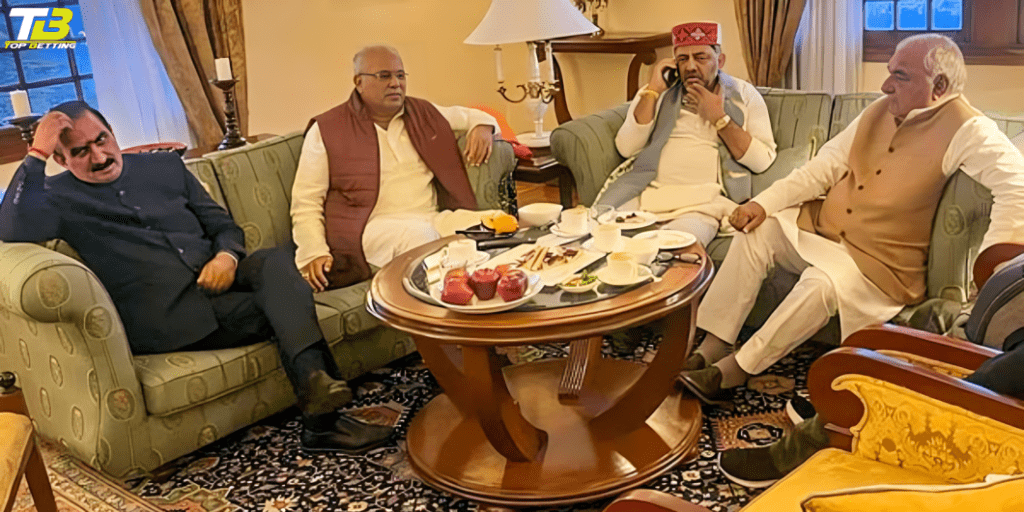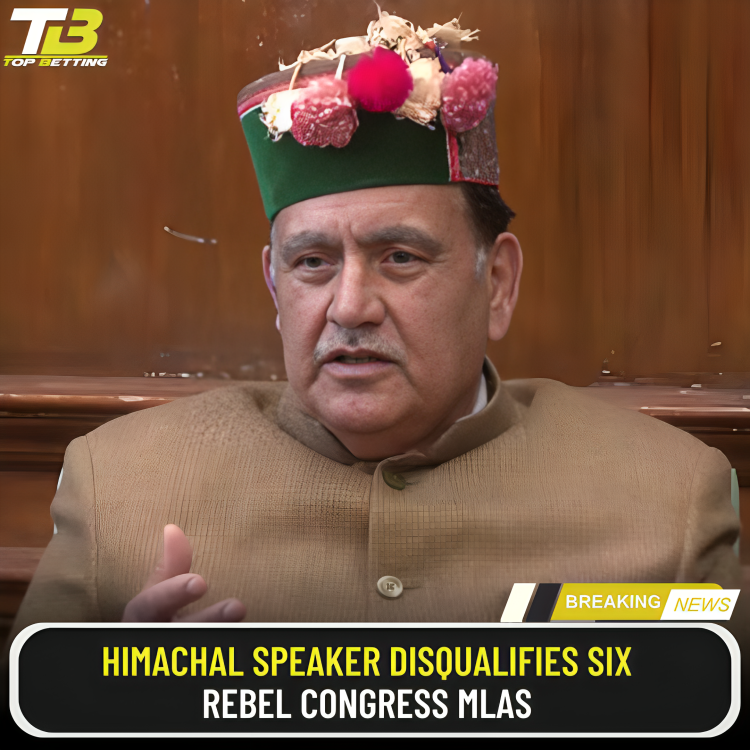
Himachal Speaker disqualifies six rebel
Introduction:
In a significant development that has altered the political landscape of Himachal Pradesh, the State Assembly Speaker took the decision to disqualify six rebel Congress MLAs, citing their anti-party activities. This move has brought attention to the internal rift within the Congress party in the state and has potential ramifications on the political dynamics and balance of power.
MLAs Rajinder Rana, Sudhir Sharma, Inder Dutt Lakhanpal, Devinder Kumar Bhutoo, Ravi Thakur and Chetanya Sharma defied Congress whip, abstained from voting on finance Bill on Wednesday
Himachal Pradesh assembly Speaker Kuldeep Singh Pathania on Thursday disqualified six Congress MLAs who defied the party whip to vote in favour of the government on the Finance Bill in the House.
The disqualified MLAs are Rajinder Rana, Sudhir Sharma, Inder Dutt Lakhanpal, Devinder Kumar Bhutoo, Ravi Thakur and Chetanya Sharma.
Addressing reporters in Shimla, Pathania, who had reserved his verdict on the disqualification of the MLAs on Wednesday, said the legislators attracted the anti-defection law by defying the Congress whip as they were elected on the party ticket.
“These six MLAs are disqualified and cease to be members of Himachal Pradesh legislative assembly with immediate effect,” the Speaker said.
These MLAs had cross-voted in favour of BJP candidate Harsh Mahajan in the Rajya Sabha elections on Tuesday. Later, they abstained from voting on the budget in the assembly.
The House passed the finance Bill by voice vote after Pathania suspended 15 BJP MLAs.
The Speaker then adjourned the session sine die.
After the 2022 elections, the Congress had 40 MLAs, while the BJP had 25 in the 68-member assembly. The remaining three seats are held by independents.
With the six rebel MLAs disqualified, the strength of the House has come down from 68 to 62 and the halfway mark is 32. With the loss of six MLAs, the Congress now has 34 MLAs and the BJP with independents has 28.
The fortunes of the Congress will now rest on its ability to keep the rest of its flock together.
Earlier on Thursday, Himachal Pradesh chief minister Sukhvinder Singh Sukhu had called a breakfast meeting of all Congress MLAs in Shimla.
Congress MLA Sudarshan Singh Bablu said, “Our government will continue under the leadership of the chief minister.”
The meeting was also attended by Congress central observers Bhupinder Singh Hooda and DK Shivakumar. The observers had met the MLAs individually on Wednesday and are expected to submit their report to the party high command later today.
The BJP has claimed the Congress had lost moral standing to be in power after losing majority in the Assembly.
Background:
The political turmoil in Himachal Pradesh unfolded when six Congress MLAs openly revolted against the party leadership, expressing their dissatisfaction with the functioning and decision-making processes. The rebels, in their defiance, aligned themselves with the opposition and jeopardized the stability of the Congress-led government in the state.
Speaker’s Decision:
The Speaker’s decision to disqualify the six rebel MLAs came after a thorough examination of their actions, which were deemed as anti-party and in violation of the Tenth Schedule of the Constitution, commonly known as the Anti-Defection Law. The Speaker, acting as the custodian of the legislative assembly, invoked the constitutional provisions to maintain the sanctity of the democratic process and party discipline.
Implications on the Congress:
The disqualification of six MLAs is undoubtedly a setback for the Congress party in Himachal Pradesh. It highlights the internal challenges and dissent within the party, underscoring the need for effective internal communication and conflict resolution mechanisms. The move also raises questions about the party’s ability to maintain cohesion and discipline among its members.
Impact on State Politics:
With the disqualification of the rebel MLAs, the composition of the Himachal Pradesh Legislative Assembly has undergone a change. This alteration may have immediate consequences on the political arithmetic, potentially affecting the stability of the ruling government. The opposition may seize this opportunity to test the strength of the incumbent government, creating a more volatile political scenario in the state.
Legal and Constitutional Aspects:
The disqualification of MLAs under the Anti-Defection Law is a constitutionally sanctioned process designed to prevent political defections and maintain the integrity of political parties. The decision by the Speaker is likely to withstand legal scrutiny, as long as it adheres to the principles and procedures outlined in the Tenth Schedule. However, legal challenges or appeals by the disqualified MLAs could prolong the resolution of the matter.
Future Course of Action:
In the aftermath of the disqualification, both the Congress party and the opposition will strategize their next moves. The Congress may work towards internal reconciliation and damage control to mitigate the impact of the rebellion. On the other hand, the opposition may exploit the situation to destabilize the government or demand a vote of confidence in the assembly.
Conclusion:

The disqualification of six rebel Congress MLAs in Himachal Pradesh has added a new dimension to the state’s political landscape. The internal strife within the Congress party and its implications on the government’s stability have become a focal point of discussion. As the political drama unfolds, it remains to be seen how the various stakeholders navigate the challenges and steer the state towards political resolution and stability.











